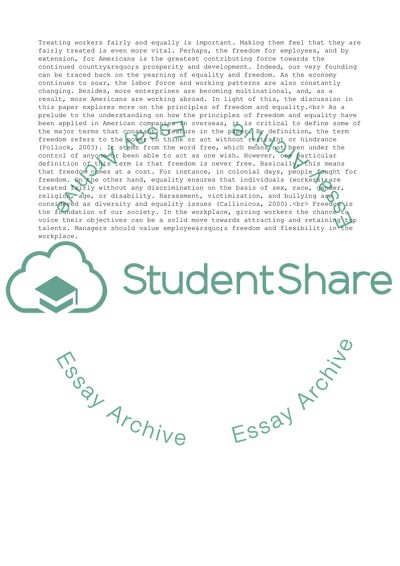Cite this document
(Principle of Freedom and Equality in the Workplace Coursework, n.d.)
Principle of Freedom and Equality in the Workplace Coursework. Retrieved from https://studentshare.org/management/1690697-business-law-and-ethics-final
Principle of Freedom and Equality in the Workplace Coursework. Retrieved from https://studentshare.org/management/1690697-business-law-and-ethics-final
(Principle of Freedom and Equality in the Workplace Coursework)
Principle of Freedom and Equality in the Workplace Coursework. https://studentshare.org/management/1690697-business-law-and-ethics-final.
Principle of Freedom and Equality in the Workplace Coursework. https://studentshare.org/management/1690697-business-law-and-ethics-final.
“Principle of Freedom and Equality in the Workplace Coursework”, n.d. https://studentshare.org/management/1690697-business-law-and-ethics-final.


